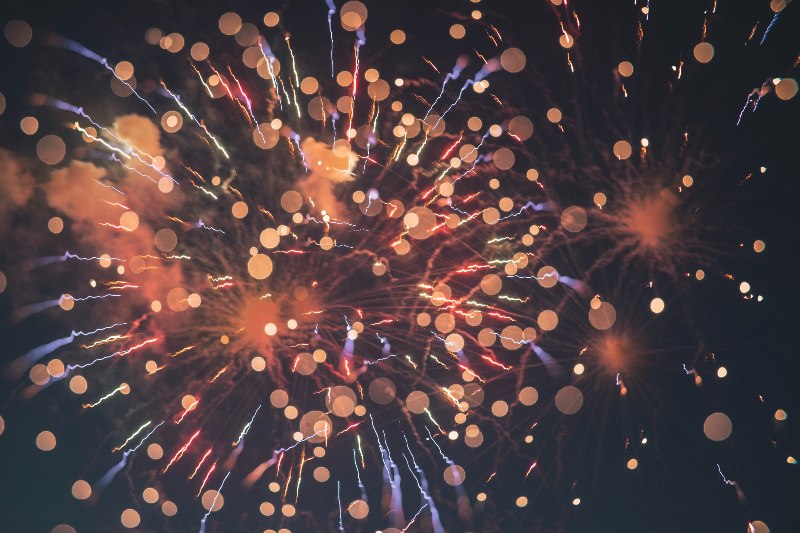Sharing is caring!
Fireworks are a fun and colorful way to celebrate the summer, and particularly the upcoming 4th of July holiday. Your safest option is to attend a local fireworks show where professionals are lighting and supervising the blasts. However, FloodSERV understands just how fun it can be to set off a few of your own. As such, we are sharing a few important firework safety tips to keep you safe during your Independence Day celebrations.
The Importance of Firework Safety
The Consumer Product Safety Commission publishes an annual fireworks report each year. In 2020, there were 15,600 reported fireworks-related injuries and 18 deaths. 1,600 of these injuries occurred by way of firecrackers, and another 900 can be attributed to sparklers. Hands and fingers are the most commonly injured extremities and 44% of the injuries were burns. There has been a trending increase of 202 injuries each year since 2005.
FloodSERV is deeply committed to caring for our customers and their families. We want everyone to have a safe, wonderful holiday. We have also seen the utter devastation that a fire creates. Our team hopes that these fireworks safety tips help you prevent a mishap.
4 Firework Safety Tips You Shouldn’t Ignore
As with all explosives, the potential for danger is undeniable with fireworks. Fingers, eyes, and any other body part are vulnerable to these hazards, in addition to your property. Keep the celebration going with these pointers in mind:
1. Be Careful When Purchasing
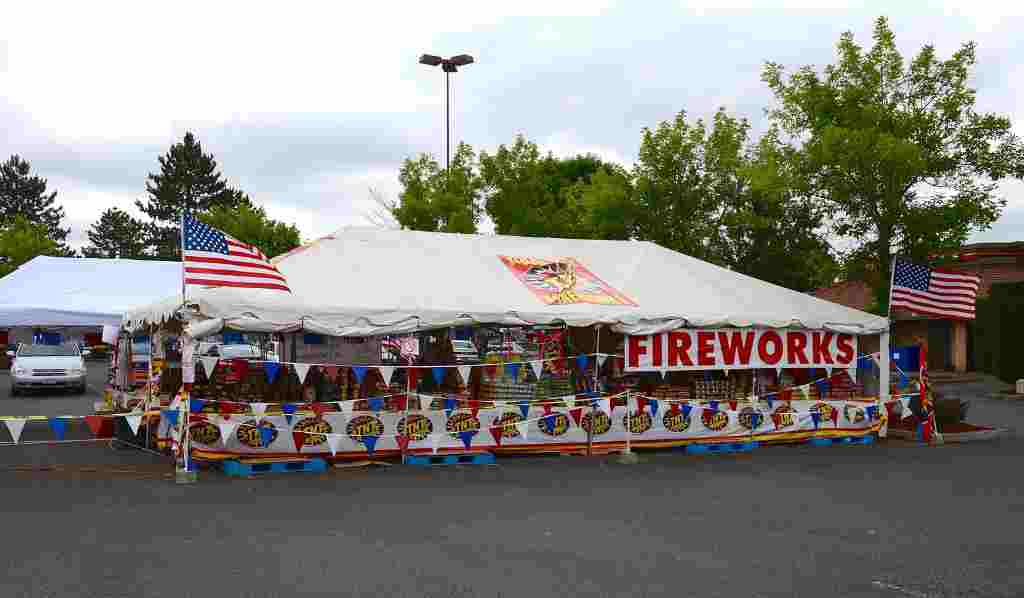 Source: Steve Morgan, Creative Commons Attribution-Share Alike 4.0 International
Source: Steve Morgan, Creative Commons Attribution-Share Alike 4.0 InternationalHitting your local fireworks stand is a fun experience in and of itself. However, firework safety begins before you even make a purchase. Avoid legal trouble by considering local laws and ordinances. Avoid fireworks wrapped in brown paper as these are usually reserved for professional fireworks shows.
All fireworks should be labeled with a manufacturer’s name and safe-use instructions. Understand that you may encounter illegal fireworks. These are identifiable by their lack of labeling, or references to M-80, M100, blockbusters, or quarterpounders. Although banned in most areas for public consumption, you can never be too careful.
When you get your fireworks haul home, store them in a cool, dry area. This should be out of reach of children and pets.
2. Safe Handling is a Must
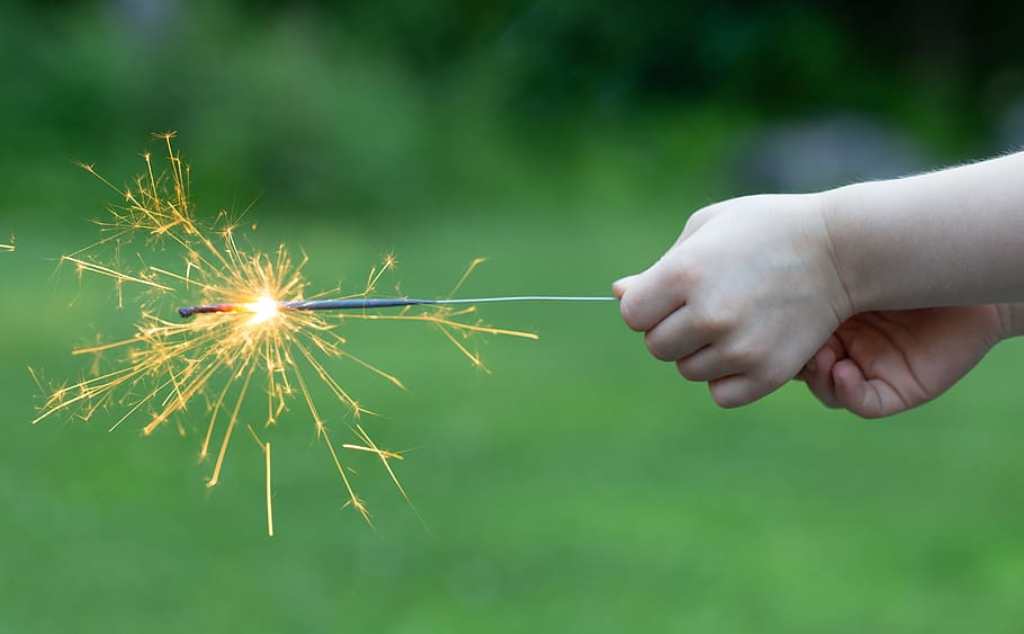
Kids should not handle fireworks of any kind. Adults who are responsible for lighting the fuse should opt for protective eyewear and suitable clothing and shoes. Never use fireworks under the influence of drugs, alcohol, or lack of sleep.
Caution should be used with not only projectile fireworks, but also handheld options such as sparkers. Sparklers burn at around 1,800 degrees, and as a favorite of children, should always be used under close supervision of a capable adult.
3. Light the fuse properly
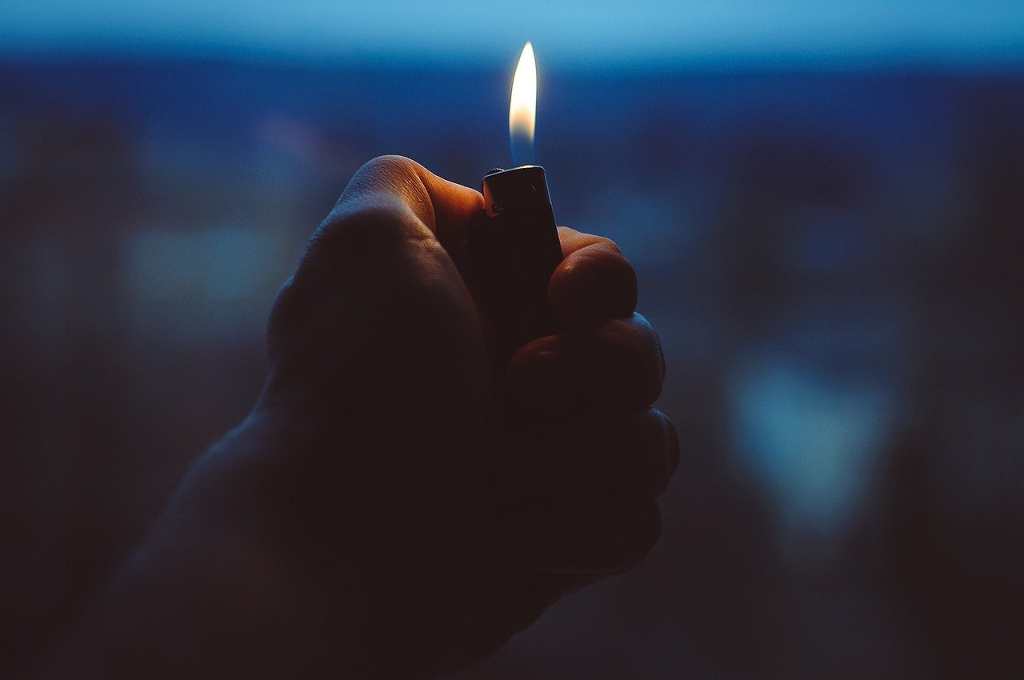
Location matters when it comes to determining where to launch your fireworks. Never light fireworks in your hand, inside of a building, or inside a container.
The National Fire Protection Association reports that fireworks cause over 19,000 structure fires each year. For this reason, you’ll want to stand far away from other people, houses, brush, and flammable debris. Never trow fireworks or point them at other people.
Only one firework should be lit at a time. As it deploys, stand back and ensure that none of your body is over the device. Duds should never be re-lit and any debris should be allowed to cool before clean up. Keep a large bucket of water nearby should a fire break out.
4. Use proper disposal methods
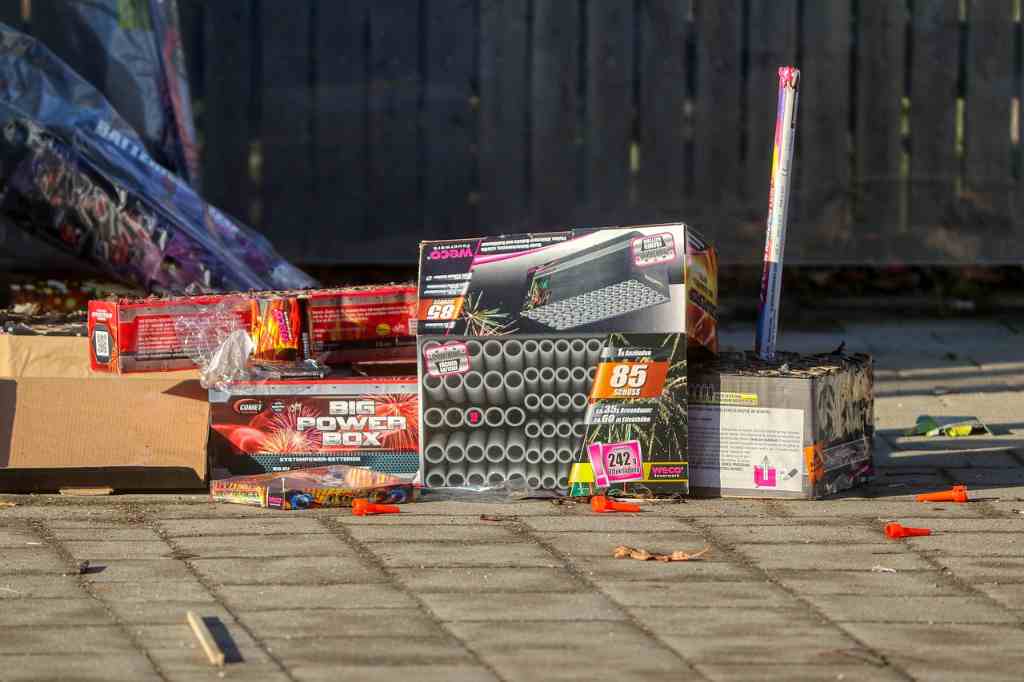
If you’ve made it this far without a firework emergency, you’re doing great — but that doesn’t mean your job is complete. Spent fireworks will need to be soaked in water for several hours to ensure they are completely put out. After, double wrap wet fireworks in plastic to prevent drying. These can then be placed in a trash can or taken to your local waste management facility. You could also contact the local fire department to see if they offer any safe disposal programs.
Don’t Let Fireworks Be Your Downfall This Summer
Fireworks are one of America’s favorite traditions for celebrations of all manners, especially during the warmer months. Don’t let the fun of the season allow you to let your guard down though. Fireworks, while fun, are the source of serious injuries, damages, and even death. FloodSERV hopes that these firework safety tips help you have a little more peace of mind while setting off your light show.
Sharing is caring!

